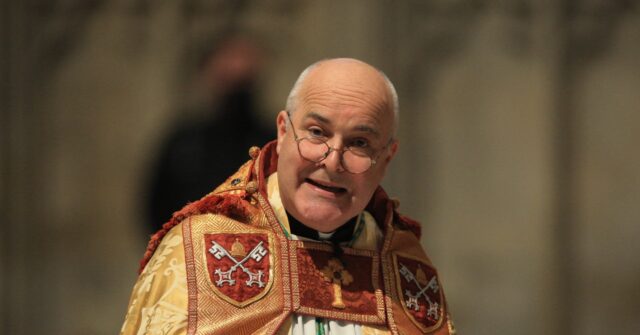The Church of England is recently embroiled in controversy following accusations against Archbishop of York Stephen Cottrell regarding his management of a case involving a priest, David Tudor, accused of sexual misconduct. Reports claim that Cottrell permitted Tudor to remain in his role, fully aware that the priest had been restricted from having contact with children and had previously compensated one of his victims. This incident unfolded during Cottrell’s tenure as the Bishop of Chelmsford, and he is poised to step into the role of spiritual head of the Church of England next month after Archbishop of Canterbury Justin Welby’s resignation over the mishandling of separate sexual abuse allegations.
Cottrell has faced public scrutiny for his decision-making, particularly as he expressed in a statement that he acted swiftly to suspend Tudor upon learning about a new accusation in 2019. However, he indicated that before this time, there were no legal bases that would have allowed for alternative actions against Tudor. Ultimately, Tudor was dismissed from his position and prohibited from ministry in October after admitting to past sexual relationships with two underage girls in the 1980s. In light of the reports, Cottrell expressed remorse for not being able to intervene sooner and defended his actions, asserting that the narrative surrounding him suggests a failure to protect victims, which he claims is inaccurate.
The call for Cottrell’s resignation has gained momentum, especially from individuals within the Church hierarchy, including Bishop of Newcastle Helen-Ann Hartley. Hartley articulated her disbelief regarding Cottrell’s ability to lead, suggesting that he lacks the credibility and moral authority necessary for the role of archbishop. Her criticisms reflect a broader sense of discontent within the Church concerning its response to allegations of abuse, posing challenges to maintaining trust with its congregants. The scrutiny of Cottrell highlights ongoing issues within the Church of England, including the expectation for leaders to embody accountability and integrity.
The Church of England finds itself in a period of reflection amid these serious allegations, particularly following Welby’s recent resignation. Investigations revealed that Welby did not promptly notify police of ongoing abuses by a former volunteer, John Smyth, which may have limited the ability to stop further misconduct. As the Church grapples with its internal failings, there are calls for organizational change and a reassessment of its procedures related to allegations of abuse. The notion of accountability at the highest levels of church leadership is under increasing examination, raising concerns about the need for reform.
Cottrell’s upcoming leadership of the Church comes during a time when its standing is compromised by these controversies. He is set to serve as the interim archbishop while the search for a permanent replacement moves forward, a process that is expected to be protracted. The implications of these events extend beyond the individual accountability of Church leaders, touching on broader themes of institutional response to allegations of misconduct, as well as the Church’s role and reputation within the global Anglican Communion, which includes millions of followers with diverse viewpoints on various social issues.
In summary, the Church of England is facing critical challenges, centering around the leadership of Stephen Cottrell in the wake of allegations concerning sexual abuse and misconduct. The situation is further complicated by the resignation of Justin Welby and an atmosphere of discontent among church figures regarding how abuse claims have been historically handled. As the church moves forward, the necessity of fostering a culture of accountability and reform stands as a pressing objective, creating an urgent need for reflection on ethical practices and leadership integrity within this long-standing institution.

